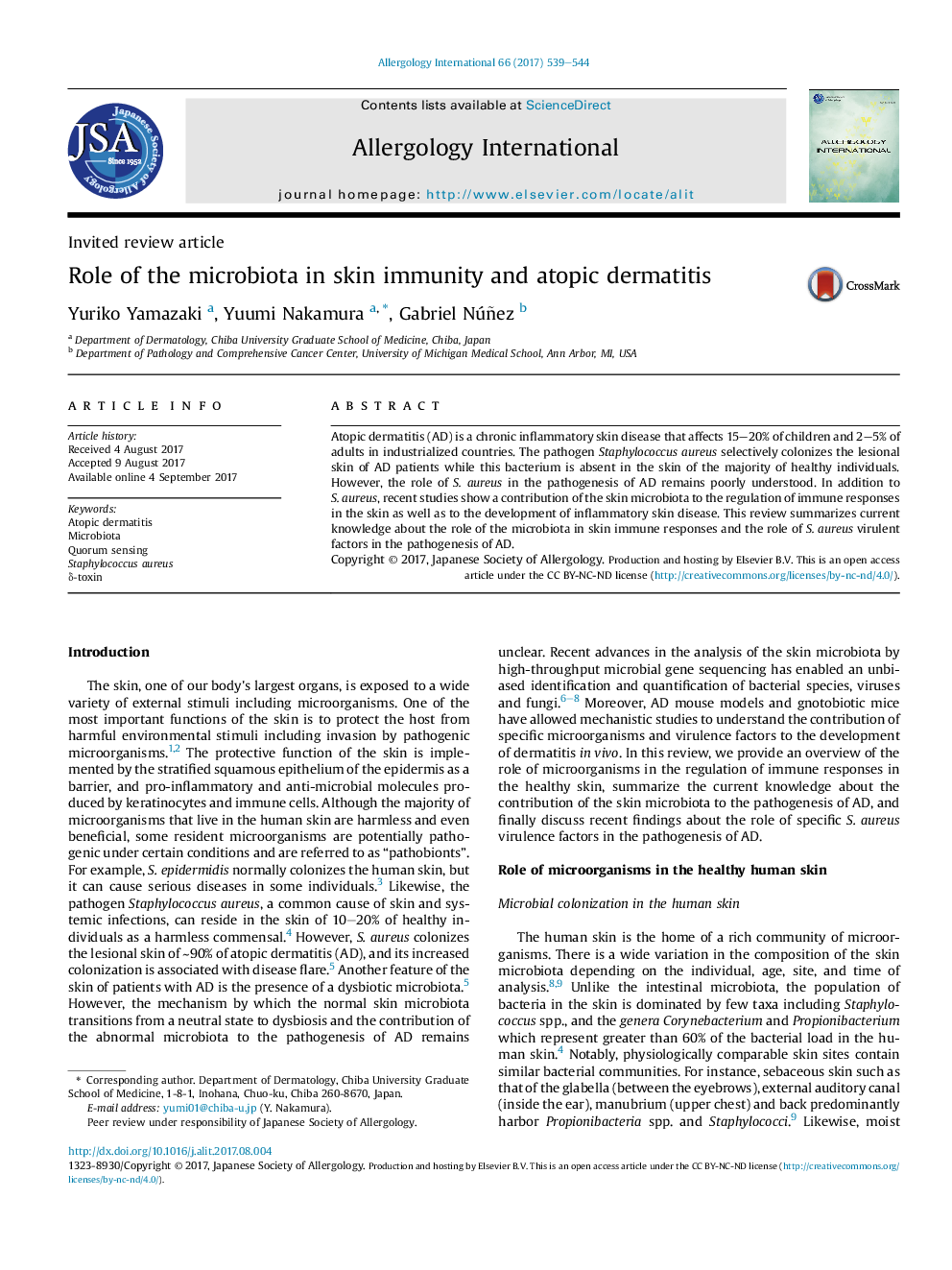| Article ID | Journal | Published Year | Pages | File Type |
|---|---|---|---|---|
| 5665143 | Allergology International | 2017 | 6 Pages |
Atopic dermatitis (AD) is a chronic inflammatory skin disease that affects 15-20% of children and 2-5% of adults in industrialized countries. The pathogen Staphylococcus aureus selectively colonizes the lesional skin of AD patients while this bacterium is absent in the skin of the majority of healthy individuals. However, the role of S. aureus in the pathogenesis of AD remains poorly understood. In addition to S. aureus, recent studies show a contribution of the skin microbiota to the regulation of immune responses in the skin as well as to the development of inflammatory skin disease. This review summarizes current knowledge about the role of the microbiota in skin immune responses and the role of S. aureus virulent factors in the pathogenesis of AD.
